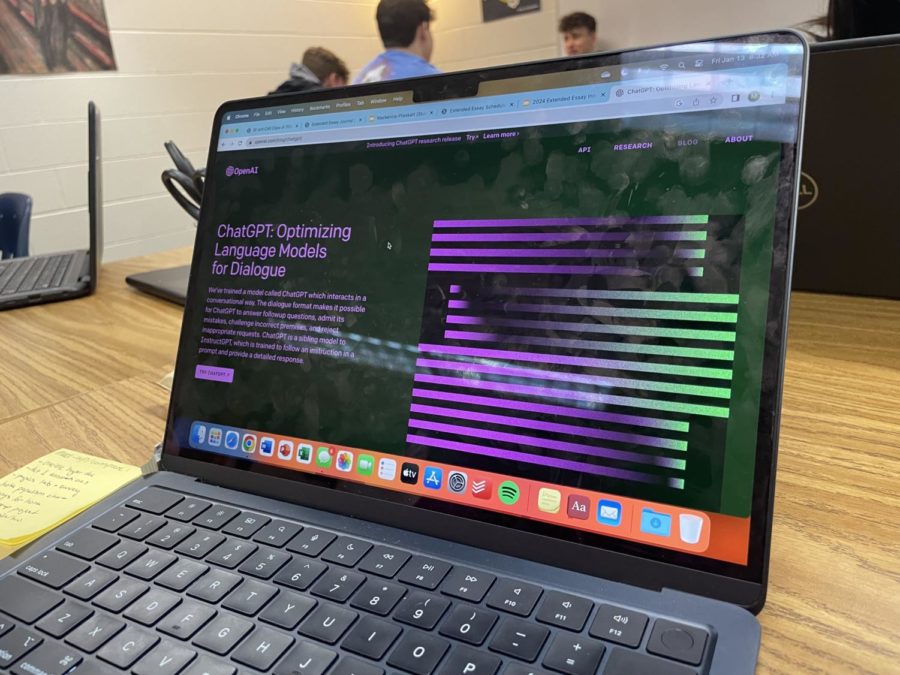AI-Powered Cheating: A Catalyst for Educational Transformation
The Surge of Academic Dishonesty Propelled by AI
The relentless advancement of technology has brought about unprecedented challenges in the realm of education. The utilization of artificial intelligence (AI) chatbots, such as the notorious ChatGPT, has triggered an alarming surge in academic dishonesty across universities worldwide. This concerning trend has spurred educators into a profound reevaluation of their teaching methodologies and assessment strategies, seeking ways to preserve the integrity of education in the face of artificial intelligence driven misconduct.
The AI Epidemic and its Consequences
Academic integrity breaches have reached an alarming crescendo, with AI-driven cheating accounting for nearly fifty percent of reported cases. An illustration of this disconcerting phenomenon was shared by Darren Hick, an educator, who took to social media to reveal the pervasive reach of artificial intelligence fueled plagiarism.

A Call for Pedagogical Revolution
The rampant misuse of AI for unethical academic gains has jolted educators and educational institutions into a state of urgent introspection. While recognizing the potential benefits of artificial intelligence to reshape the learning landscape, they are grappling with the imperative to safeguard the sanctity of academic ethics.
Innovating Assignments for Resilience
In response to the AI-driven plagiarism menace, educators are meticulously reshaping their curricula to prioritize personalized writing assignments. This strategic pivot compels students to delve into their own experiences, viewpoints, and insights, rendering artificial intelligence generated generic content obsolete. To fortify the defense against artificial intelligence related breaches, academic institutions are incorporating rigorous anti-artificial intelligence guidelines within course syllabi.
Empowering Educators with Autonomy
An adaptable approach has emerged, entrusting educators with the discretion to integrate or exclude chatbots from their classrooms. This autonomy equips educators to tailor their teaching methodologies to effectively address the intricate challenges posed by artificial intelligence-generated content.
Innovative Questioning Paradigms
Educators are venturing into uncharted territories to neutralize the efficacy of artificial intelligence-produced answers. The traditional format of questions demanding mere factual recall is being revamped. Instead, educators are formulating queries that necessitate critical thinking, analysis, and error identification. By doing so, they are erecting barriers that deter the rapid and precise generation of accurate responses by AI systems.
Beyond the Classroom: AI and Societal Shifts
The ramifications of artificial intelligence-abetted cheating reverberate beyond the academic setting. Online platforms, like Chegg, that offer homework assistance, have witnessed a steep decline in usage due to the escalating adoption of AI-powered solutions by students. This behavioral transformation underscores the necessity for a comprehensive overhaul of data utilization and consumption practices.
Sustaining the Struggle
Educators find themselves enmeshed in an ongoing battle to counter emerging threats posed by artificial intelligence to the educational realm. As the potential of artificial intelligence to revolutionize education continues to unfold, educators must remain vigilant and adaptive. The challenge extends beyond academic integrity; it encompasses redefining the educational landscape to ensure that AI augments, rather than undermines, the pursuit of knowledge and personal growth.
In this epoch of AI-powered innovation, educators stand as the vanguards of ethical education, striving to strike a harmonious balance between technological advancement and the preservation of academic integrity. The solution lies not merely in reactive measures, but in fostering a proactive pedagogical paradigm that empowers students to embrace the digital future with integrity and purpose.
